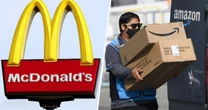The U.S. is the only country in the world where foreign tourism spending is set to decline in 2025 compared to last year: A recent report from the World Travel & Tourism Council predicted a drop of 8.2% from 2024, “a clear indicator that the global appeal of the U.S. is slipping,” according to the industry group, driven by a sense that the Trump administration is hostile to foreigners.
Visits from Germans and Danes are down by double digits, while Canadian visitors dropped 37% this July compared to last July.
That reality has led some in the travel business to get creative.
Enter ResortPass, a platform that allows anyone to experience all the perks of a luxury hotel without staying the night. It works with 2,000 hotel partners, including major U.S. chains from Kimpton and Hilton to the Ritz-Carlton, to offer amenities like pool access and spa passes to staycationers.
“Hotels have realized they need to figure out ways to monetize other parts of the hotel,” said CEO Michael Wolf.
“The revenue that we send hotels is incredibly high margin, because there’s such low variable costs,” he added.
The view from home
ResortPass takes a cut from each reservation. According to Wolf, the company has grown exponentially since he took the reins three years ago. And he said that it’s local “dayguests” or “daycationers” who are driving the most business: 87% of business in New York, 86% in the Bay Area, and 81% Los Angeles is from locals.
That’s because while more international travelers are staying away, more Americans are also staying put.
Forty-six percent of Americans planned a summer vacation this year, a steep drop from 53% last year—with almost two-thirds stating it’s because they can’t afford it.
Fervor for “revenge travel,” a post-pandemic trend where holidaymakers made up for lost time with ambitious trips, has faded. In turn, working Americans are unlikely to even take all their vacation days; some 78% do not use all of their paid time off.
Instead, consumers may be more drawn to indulge in short-term self-care, such as taking a day to rest and recharge, to lie by a pool or get a massage to help avoid burnout.
And if you already live within transit distance of the hotel, even better: For example, a New Yorker can hop on the subway and hit the rooftop pool at the William Vale in Brooklyn.
At the same time, hotel prices have surged in recent years; the average price of a New York City hotel room in September 2024 was $417, the highest monthly rate ever recorded.
And hotels are keeping room rates high despite the lack of guests; ResortPass allows these establishments to generate an “untapped stream” of revenue from parts of the property that are already catering to overnight guests.
Wolf says it’s akin to how airlines have (unpopularly) increased fees for amenities that were already present, such as add-on “drip” charges for seat selection or more legroom. “The difference is [our] users love it,” he says.
Neighbors have purchasing power
ResortPass has found that local day guests spend more during their brief stays—at least double that of overnight guests—and tend to return to the property and recommend it to friends.
“If you’re a day guest, by definition the premise of your day is to come and spend all day enjoying that hotel,” Wolf said.
It’s helped vacation meccas like Las Vegas, he said, which saw tourism decline for a sixth consecutive month in July. It’s one of ResortPass’s best-growing markets, with hotels able to fill up “underutilized” cabanas and daybeds.
ResortPass is bullish about the future even if the post-Labor Day weather is too chilly for piña coladas by the pool. Fall merely brings a different set of opportunities for customers, Wolf said, like cozy spa days and saunas. “There’s an extra level of serendipity,” he said, “because you didn’t even know you could do this thing.”








No comments